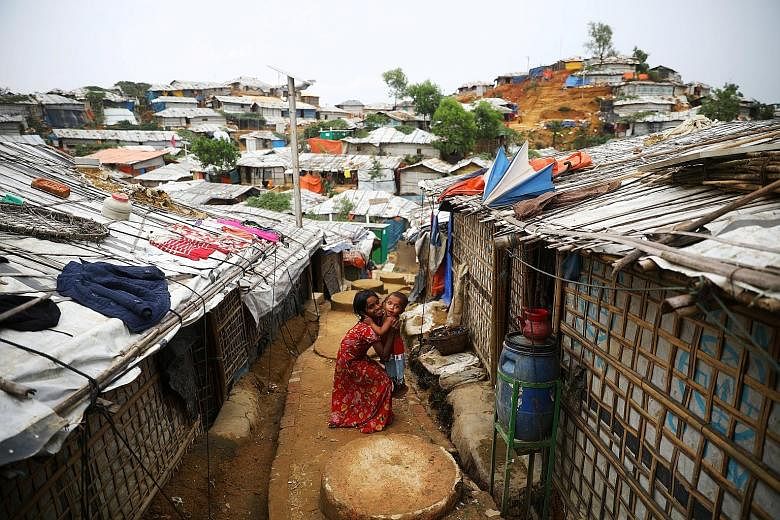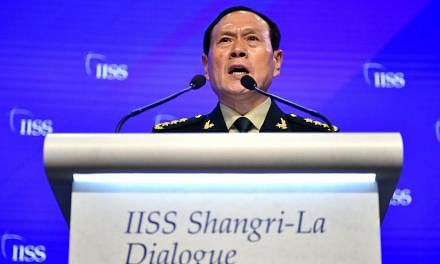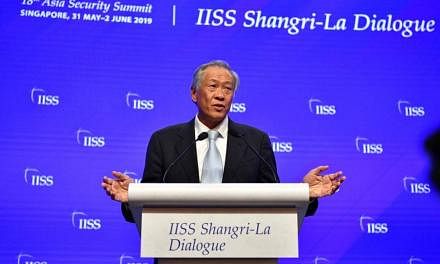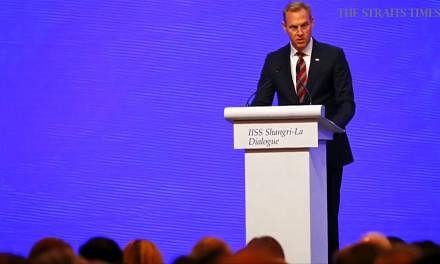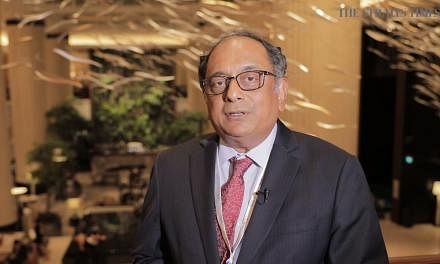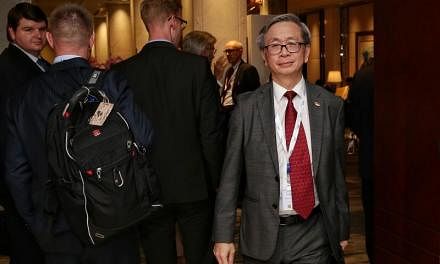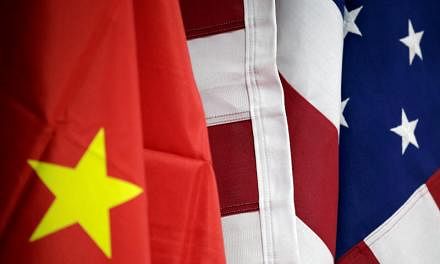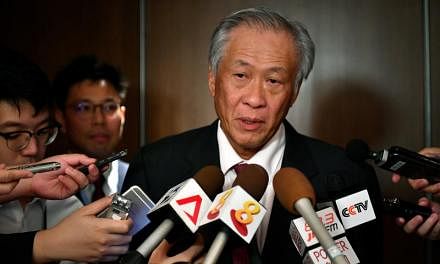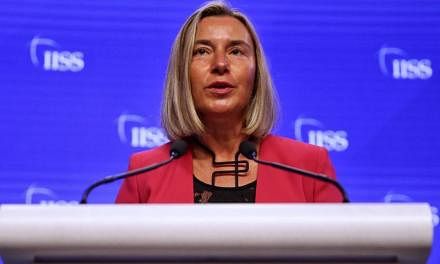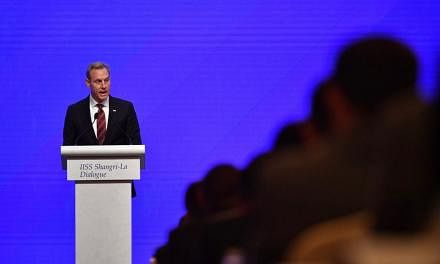Disturbances in the South China Sea, the movement of Rohingyas in the region as well as non-traditional security threats such as maritime and cyber-security risks pose the biggest challenges to the region, Malaysia's Defence Minister Mohamad Sabu said yesterday.
The region needs to build on collaborative defence diplomacy to deal with these challenges, Mr Mohamad said in his address to the Shangri-La Dialogue.
During a plenary session titled Asia's Evolving Security Order And Its Challenges, he said stability in the Strait of Malacca is particularly important, with more than 100,000 ships passing through, adding that the South China Sea is vital too.
It is important that nations do not have war and the 1982 United Nations Convention on the Law of the Sea (Unclos) is upheld, said Mr Mohamad, referring to the universally accepted set of rules governing naval operations in the oceans.
"If anything happens in the Strait of Hormuz, the world will suffer. Similarly, if anything happens in South China Sea, the world will suffer. So we have to increase defence diplomacy," he added.
China claims sovereignty over most of the South China Sea, but parts of the waters are disputed by the Philippines, Vietnam, Malaysia and Brunei, as well as Taiwan.
The United States has conducted freedom of navigation operations in the disputed waterways, and both China and the US have spoken out against each other's actions in recent years.
In a separate session, a Chinese delegate urged China and the US to cooperate rather than confront each other on the South China Sea.
Speaking at a panel discussion about mechanisms for enhancing maritime security, Senior Colonel Zhou Bo from China's Ministry of National Defence said the two countries have different understandings on the "content, scope and application" of freedom of navigation.
As such, both should seek common ground while shelving differences.
"One side should not impose its own unilateral understanding on the other side, and even send military vessels and aircraft to conduct dangerous military activities."
Last month, the US sailed its warship USS Preble in the South China Sea within 12 nautical miles of Scarborough Shoal, angering Beijing which urged the US to stop "such provocative actions".
Senior Col Zhou added: "As long as the two sides do not sacrifice each other's security, China and the US can cooperate in safeguarding the freedom of global navigation and provide more public security goods in maritime commerce."
Mr Mohamad also highlighted the large movement of Rohingya refugees as a regional challenge.

"The plight of Rohingyas has snowballed into a crisis. No longer is the situation in Rakhine (in Myanmar) a domestic conflict.
"Malaysia will continue to subscribe to the Asean principle of non-interference. But the widespread movement of Rohingyas creates instability," he said, citing it as a potential factor in extremism.
DISPUTES AND FRIENDSHIPS
US Senator Tammy Duckworth on Prime Minister Lee Hsien Loong's keynote address on Friday night:
"I thought it was the kind of talk you get from a good friend, a friend you can trust, a friend who is not afraid to be blunt with you, to point out your weaknesses where there are, and a friend who is also encouraging and helpful and points out the way you can do better. And Singapore has truly been a friend of the United States, and that's a valuable thing to have especially in this time in the world where things are not always stable."
Singapore Defence Minister Ng Eng Hen on what the atmosphere was like between his Chinese and American counterparts during his ministerial lunch with defence ministers:
"Well, if it were a silent movie, you wouldn't know that there was a dispute."
Malaysian Defence Minister Mohamad Sabu, citing the risks of disturbances in the South China Sea as a key security challenge for the region:
"We love America. But we also love China. It should remain an area of peace, friendship and trade, rather than one of confrontation and conflict."
Senior Colonel Zhou Bo of China's Ministry of National Defence, who was part of a panel discussion on mechanisms to enhance maritime security:
"I sometimes consider my life a big joke. And that is because as an air force officer, I have been taking care of China's efforts in counter-piracy in the Gulf of Aden for nearly five years, and this is my second time speaking at the Shangri-La Dialogue about maritime issues as an air force officer. Life is ironic sometimes, but this is life."
